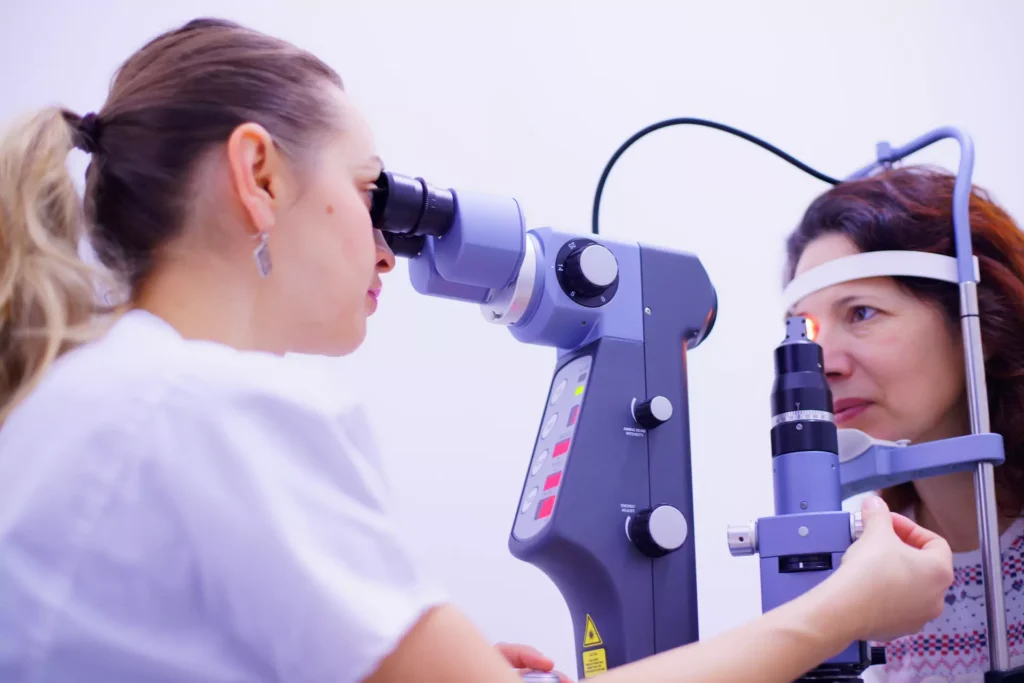Diabetic retinopathy is a leading cause of blindness in adults, but it’s not always easy to spot the earliest signs. The good news is there are certain signs that may indicate when diabetic retinopathy is developing if you know what to watch for.
Read on as a Fort Worth, TX optometrist discusses diabetic retinopathy and early warning signs to consider.
What Is Diabetic Retinopathy?
Diabetic retinopathy is an eye disease that can lead to blindness if left untreated. It’s caused by damage to the blood vessels in your retina, which is the light-sensitive layer of tissue at the back of your eye. This damage occurs when sugar levels in your blood are too high for too long.
Diabetic retinopathy is a common complication of diabetes, affecting more than 10 million Americans. It can occur at any age, but it’s most likely to develop when you’re 40 or older.
Warning Signs of Diabetic Retinopathy
Blurry Vision or Trouble Telling Small Objects Apart
Blurred vision is a common symptom of diabetic retinopathy. For some people, small objects may appear blurry or unclear; others may see double images when looking at bright lights (like street lamps).
Changes in Night Vision
People with diabetic retinopathy may have difficulty seeing in dim light or at night, making driving difficult.
Also, some people with this condition experience blurred vision at night and during the day, which can make it hard to read or perform other tasks that require seeing clearly.
Changes in Peripheral Vision
Peripheral vision is the part of your visual field outside of your direct line of sight. Changes in peripheral vision can be caused by several factors, including diabetes and a number of other eye diseases. Diabetes affects the blood vessels in the retina, which can lead to vision loss over time if left untreated.
Risk Factors
- Smoking
- High blood pressure
- High cholesterol levels
- Having a family history of diabetic retinopathy – If both parents or a sibling has diabetic retinopathy, you may be at an increased risk.
- Frequent high blood sugar levels – Having frequent high blood sugar levels makes it more likely that you will develop diabetic retinopathy over time.
If you have diabetes, it’s important to keep all of your eye appointments and follow-up as instructed. If you don’t have diabetes but are experiencing symptoms like blurry vision or seeing spots make an appointment with your doctor right away—they may be signs of a serious health problem.
If you have more questions or wish to schedule a consultation, please don’t hesitate to call our Fort Worth, TX optometry office anytime!



